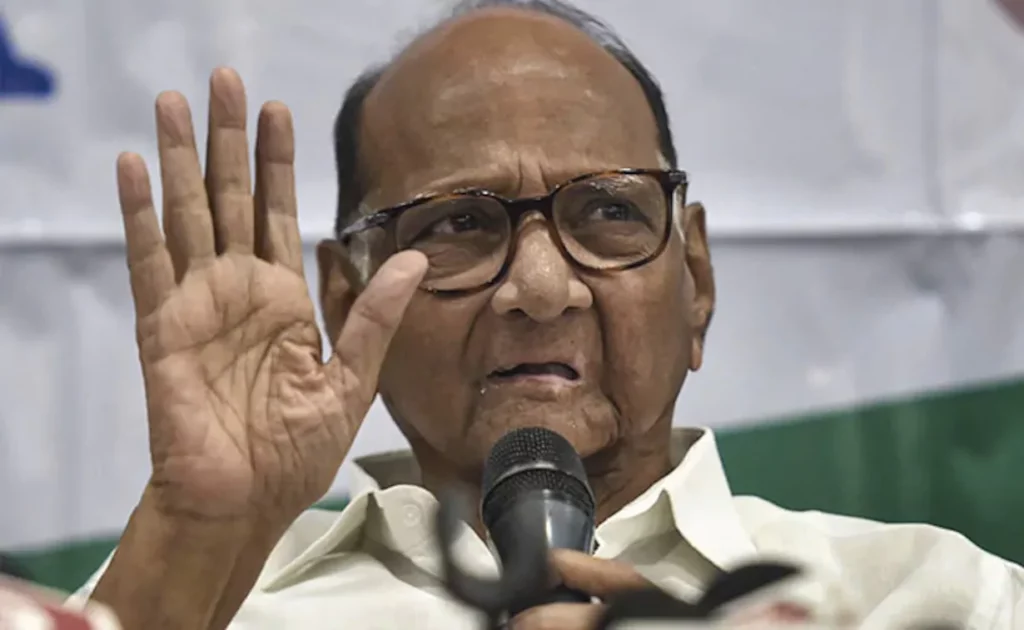
In a dynamic turn of events, the veteran Indian politician Sharad Pawar has unequivocally dismissed the possibility of forming an alliance with the Akali Dal. The political landscape in India is often characterized by its intricate web of alliances, rivalries, and strategic maneuvering, making this announcement a pivotal point of interest. Pawar’s declaration was made during a live gathering in Mumbai, capturing the attention of political enthusiasts and analysts across the nation.
Sharad Pawar’s Definitive Stance
During the live interaction in Mumbai, Sharad Pawar, known for his astute political acumen and leadership, left no room for ambiguity as he ruled out any potential alliance with the Akali Dal. This statement reverberated through the political corridors, sparking discussions and debates among both his supporters and critics.
The Complex Nature of Political Alliances
Political alliances have long been a cornerstone of Indian politics, often dictating the course of governance and policy-making. The prospect of an alliance between two prominent parties like Sharad Pawar’s faction and the Akali Dal could have had far-reaching implications, potentially reshaping the political landscape of certain regions.
Factors Influencing Pawar’s Decision
Several factors are likely to have played a role in Sharad Pawar’s firm decision to forego any collaboration with the Akali Dal. These factors include ideological differences, historical context, and regional considerations.
1. Ideological Differences
Ideological disparities often serve as significant barriers when political parties contemplate forming an alliance. Sharad Pawar’s party and the Akali Dal may have differing views on crucial matters such as economic policies, social reforms, and governance principles. Such disparities can hinder effective cooperation and compromise in a coalition.
2. Historical Context
The historical context between two parties can also shape the viability of an alliance. Previous interactions, conflicts, and collaborations can influence the level of trust and rapport between leaders. It is plausible that past experiences between Sharad Pawar’s party and the Akali Dal may have influenced the decision to abstain from an alliance.
3. Regional Considerations
Indian politics is intricately tied to regional dynamics and aspirations. Parties often align with those that share a common vision for the development and representation of a particular state or region. Sharad Pawar and the Akali Dal may have varying priorities when it comes to regional interests, making an alliance less feasible.
Implications and Future Scenarios
Sharad Pawar’s resolute stance against an alliance with the Akali Dal carries significant implications for the political landscape in India. The decision is likely to have ripple effects on electoral strategies, party dynamics, and the broader approach to coalition-building.
1. Electoral Strategies
With the ruling out of a potential alliance, both parties will now need to recalibrate their electoral strategies. They will aim to consolidate their respective vote banks and appeal to the electorate based on their individual strengths and promises. This could lead to a more competitive electoral battle in certain constituencies.
2. Party Dynamics
Internal party dynamics often shift when alliance possibilities are explored and subsequently dismissed. Sharad Pawar’s firm declaration could impact the morale of party members and supporters. It could also influence the internal power balance and leadership dynamics within the party.
3. Coalition-Building Approach
Pawar’s stance sets a precedent for his party’s approach to future coalition-building. The party’s commitment to its ideological stance and regional priorities may take precedence over short-term gains through alliances. This could redefine the party’s strategy and alliances in subsequent elections.
Public and Political Reactions
Unsurprisingly, Sharad Pawar’s statement has triggered a wide spectrum of reactions from the public and political commentators alike. Supporters of both parties have expressed their opinions, with some applauding the principled stance, while others express disappointment at the missed opportunity for a potentially transformative alliance.
Conclusion
In the heart of Mumbai, Sharad Pawar’s categorical dismissal of any possibility of an alliance with the Akali Dal marks a significant juncture in Indian politics. The decision carries multifaceted implications for both parties and has the potential to shape the contours of future political narratives. As the nation watches and analyzes the aftermath of this announcement, it is evident that the intricate dance of alliances and strategies in Indian politics continues to evolve, with each move redefining the larger game.
